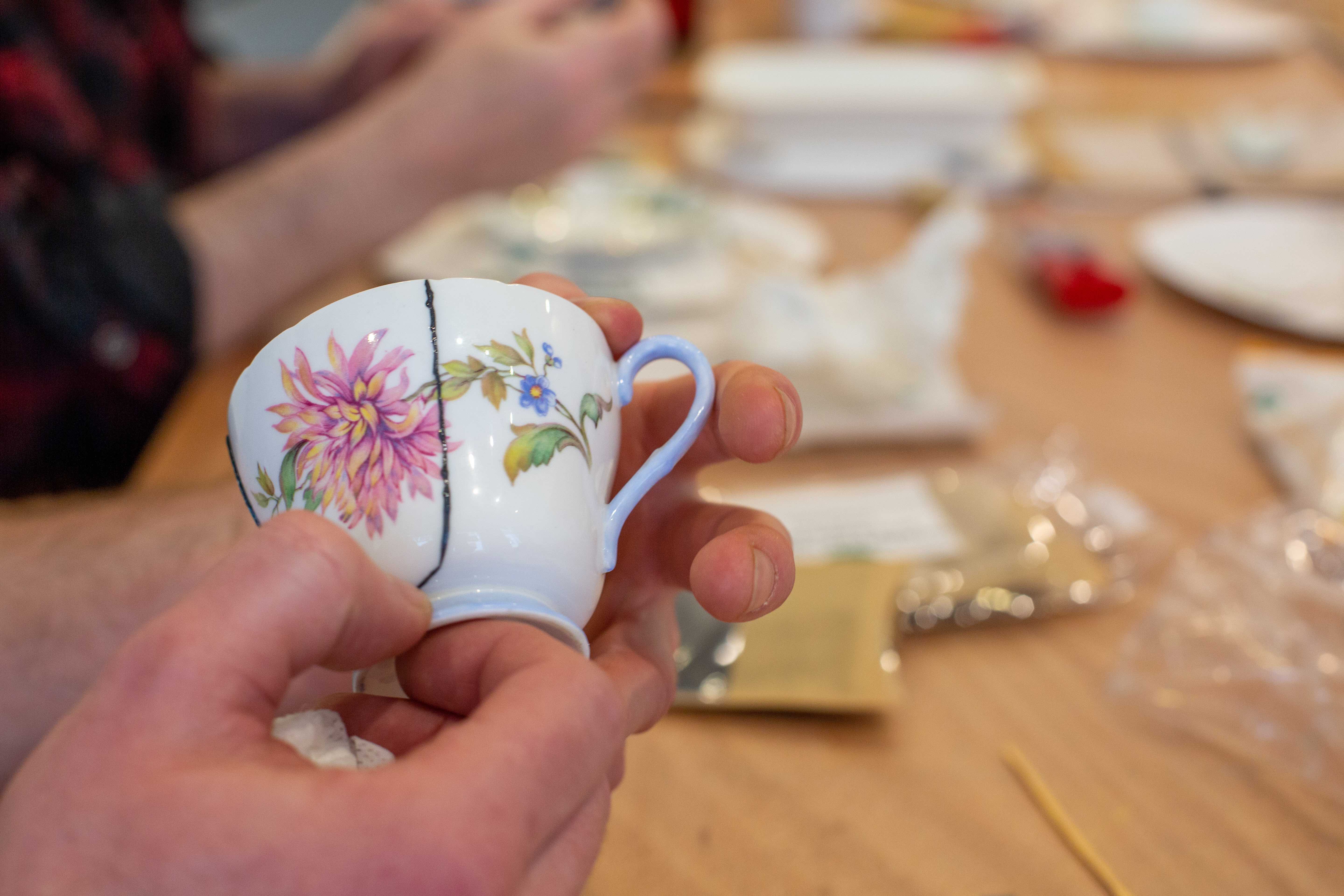
This article is by Mark Prest, Founding Director of Portraits of Recovery, sharing insights into their most recent project, The Repair Centre
For 11 years, Portraits of Recovery has been inspiring and supporting people in recovery from substance use from Greater Manchester and beyond through the arts and culture. Centrally, our work reimagines ways in which recovering people and their communities are more authentically represented and better understood. We engage those in recovery by empowering them as artists and creators, growing their participation in culture, demystifying the world of contemporary art and giving a powerful voice to an all too often-marginalised community.
We empower Recoverists (people in recovery) to create art for challenging the social stigma associated with substance use. Our work reframes addiction and recovery as a health, social and cultural issue and not a moral failing, guided by Recoverism; an inclusive social movement and form of cultural activism. Recoverism is an ideology which can help support society to better look at itself, to shift radically how we all work, think, live, love, connect and creatively express ourselves.
Our most recent project, The Repair Centre (2022), invited participants to explore the parallels between ceramic reconstruction and recovery – two forms of “repair”. Through a series of workshops utilising non-traditional methods and a mindful approach inspired by kintsugi, Recoverists learned new skills and showcased original work in a pop-up display at Manchester Craft and Design Centre.

Kintsugi (the art of repairing broken ceramics with gold) is rooted in the Japanese philosophy of Wabi Sabi – which encourages us to embrace imperfection, and appreciate the beauty of human flaws:
A broken pot is made whole again, and within its golden repair we see a world of meaning. Kintsugi is the art of embracing imperfection. (Kintsugi: The Poetic Mend. Bonnie Kemske, 2021, Herbert Press).
For each of our projects, we commission a range of artists to develop new work that gives authentic voice, for re-framing stigmatized perceptions and a Recoverist view of themselves and their place within the world. Our projects seek to break down barriers and promote inclusion through enhanced notions of cultural citizenship, with many Recoverists going on to find employment, access further education and re-integrate into society. Recently, one of our Recoverists, Anastasia, who participated in Sounds at the Edges (2021), was offered a place studying BA Textiles in Practice at MMU’s Manchester School of Art.
Stories like Anastasia’s, who after working with us was inspired to return to study , are why we know that the work, works. A Recoverist approach that harnesses the transformative powers of art, and the therepeutic benefits of art-making can have a huge impact on people’s lives, which is why de-stigmatising the recovery experience is so important to society and to increase senses of community and individual wellbeing.
Find out more about Portraits of Recovery and other upcoming projects.
Main image: Artist Carol McNicoll leads a workshop exploring textile repair methods
